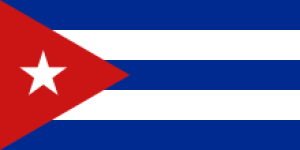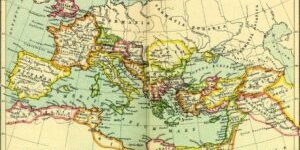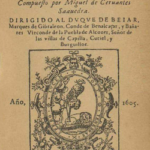Digital Engagement In A Post-Factual World: Silos, Echo-Chambers And Lies
No Comments yet What is communication?
What is communication?
What constitutes communication has always been historically contingent. It is never easy to pin down and designate ‘what is communication is’ and ‘what it is not’. But it is obvious that communication has taken many forms and evolved: from cave art to town criers, from street theatre to newspapers and television, and finally to digital engagement. One may argue that none of the aforementioned has influenced the world as much as digital engagement, making information available at your fingertips, changing the power dynamics for communicators, and transforming the way people can be influenced and their attitudes shaped. Here we try to explore issues of how digital engagement will thrive in a cynical, nationalist, populist world and raise the pertinent question: Does digital engagement encourage better decision-making, or merely reinforce prejudice?
The impact of Brexit and the USA presidential election
Two major events that gave “post truth” a linguistic footing were Brexit and the election of USA President Donald Trump. They showed that the world has indeed changed, and exposed the fact that people are making decisions based on emotions and beliefs. So, in the new world we live in, is evidence less important than beliefs? In the UK referendum on the EU, the #leave campaign claimed falsely that leaving the EU would mean that £350 million could be given to the National Health Service (NHS). After Brexit, thousands of people signed online petitions to have the result of the referendum reviewed. Gillian Tett, author of ‘The Silo Effect’ wrote, “The Brexit vote was decided on the basis of emotion – and the Remain camp failed to give voters a really positive vision of Europe.”
The impact of digital engagement on decision-making
Digital engagement was meant to make information more accessible to more people. But it has also made it possible for anyone to publish anything they want without having to provide evidence. As a result people find it hard to tell the difference between truth and lies. Fake news propagated on Facebook about the Pope supporting Trump and Trump’s tweets changing the direction of media coverage, makes one wonder whether digital engagement is encouraging propaganda and disinformation? Or whether people are making decisions based on emotions and do not care much about the facts?
In an interview with the Financial Times in June 2016 Adair Turner former Head of the Financial Services Agency (FSA) said, “I was once a confident optimist and rationalist. I also used to believe that everybody could be persuaded by rational argument. I’ve increasingly realised that people need mythologies, people need nationalisms and people need religions.”
Power to the powerless?
Digital engagement was thought to level the playing field and give power to the powerless (as in Arab Spring). It was believed to be a way to re-engage voters, in particular young people, with politics, giving a voice to the voiceless. Instead, it has given the powerful another weapon to acquire even more power. It favours those who shout loudest, responsible for the growth of ‘populism’ and government by Twitter. Today, anyone with a smartphone can voice an opinion, create an opinion train and broadcast beliefs. Communication becomes a political process when this happens, as opinion formation and counter-commonsensical visions gain popularity and contribute to undermining democracy. Perhaps this may have inspired the OECD, which has recently called on schools to teach young people how to identify fake news.
Better decision-making?
Perceptions of the power and value of social media to facilitate learning and participative engagement have shifted significantly since the events of 2016. It was thought that digital engagement would bring people together by making it easier for multiple-stakeholders to connect and participate in open dialogue. There was an expectation that better conversations would inevitably lead to better decision-making, building sharing knowledge and skills. However, social media is driving people further apart by creating silos and echo chambers that lead to people living in ‘thought bubbles’, and views becoming polarised. This is because people tend to follow people ‘like them’; people with the same values and beliefs, the same positions, need and interests. Facebook and social feeds have clever algorithms to continually feed us with monotones that reinforce our biased beliefs.
We live in a post-factual world where people are allegedly tired of experts, and the headlines are dominated by fake-news. Liberal beliefs and values prior to 2016 have been trampled on and consigned to the waste bin. It’s as if the whole world has realised – like Voltaire’s Candide – that all is not for the best in the best possible of worlds. But we cannot deny that we are living in interesting times. Maybe not the best of times, but it surely can’t get more interesting (or frustrating?) than this.
Fostering sustainable learning ecosystems
In the wake of the Arab Spring, Brexit, the Italian Referendum, and the election of Donald Trump as President of the USA, it’s time to question received wisdoms and assumptions about the power of digital engagement to unite and empower citizens and communities, and to foster sustainable learning ecosystems. The internet cannot be understood unless we also dwell upon surveillance societies, state actions, political performances, digital divides or class divides. Networked societies have interesting channels that transcend some of the barriers that came into being as a part of modern state orders. At the same time a language of democracy and egalitarian dialogic is yet to be structured for the networks that seem to be in place. Here we have to bring in an array of actors, platforms, sciences, and even performances. The states that work against democratic public in the form of elitisms, social and educational habitus that in effect become less communicative in action because of their exclusionary nature: science that often gets reduced to techniques and technologies that are system conservative and performances that pitch ‘us’ against ‘them’ (among many other varieties); all need to be addressed with renewed pedagogic commitment.
Five standards for digital engagement
Digital engagement began as a medium to bring people together by making it easier for multiple-stakeholders to connect and participate in open dialogue. The power of social media to enhance citizen engagement, give the voiceless a voice, strengthen democracy, and foster learning ecosystems has been greatly exaggerated. Perhaps it is time to introspect and reflect on what constitutes proper communication and what does not. Perhaps it is opportune time to come up with some guidelines for digital engagement. Society has always used values, rules and standards to regulate unwanted or harmful behaviour, so why did we not come up with the same for digital engagement? We have taken the nerve to come up with five standards for sustainable digital engagement.
Safety
Digital engagement must ensure safety and security and have greater controls on use (or abuse) of person information. Now, we know this is easier said than done. Sadly, it is the reversal of security for individual privacies and is now becoming a reality that digital engagement is being used as a surveillance method. Social media sites have responsibility for protecting the identity and rights of their members, and their right to air views against the dominating orders.
Trustworthy
Online instructors and moderators must be trained to ask questions and encourage debate. Contributions and content from users should be welcomed. Where sites or programmes are inspired by a particular set of beliefs, values, funding or allegiances, these should be openly declared. Forums should seek to build trusting networks, not simply tell people what to do.
Truthful
Automatic checks on fake news being propagated in social media and some means to stop such news spreading are needed. Wouldn’t it be great if Facebook and Twitter had a technical algorithm which automatically checks the posts against facts or in certain dailies, such as Reuters and tags the news items as “fake”? This will silence users and prevent further spreading of such news.
Fairness
Algorithms must be fair. News feeds only using algorithms that provide a monotone need to change. They must allow for alternative points of views to be fed to people, so that they make informed decisions.
Humanness
“Online giants tend to view humans as audiovisual animals – a pair of eyes and a pair of ears connected to 10 fingers, a screen and a credit card”, said Yuval Noah Harari. Social media has to move up from just marketing and making money, to a higher level of giving a voice to the voiceless, making positive impacts in the world, growing communities to improve the world? Let us bring “humanness” into social media, which means being authentic, transparent and real. Instead of posting selfies and junk news, let us promote human interaction and kindness.
Bringing humanity and human values into digital engagement is a collective responsibility, and we are all in it as much as the online giants. Hopefully we can be the generation that made technology and humanity converge into a space where post-truth, siloes, echo chambers and lies dissolve away to make way for an ideological movement that will benefit the whole world.
Let’s make digital engagement great again!
About the authors:
Edward Kellow ~ I am a highly creative, energetic and outcome focused trainer, facilitator and coach, specialising in leadership, communications, strategy development, and training design and delivery. In the past year I have worked with leaders, change-makers, and policy implementers in industry (from ceramics to scallop fishing, glass, cement, chemicals and refineries), urbanism, international governance and CSR. I have over twenty years of experience in learning and development, ten of which working internationally at senior level. From 2006-2012, I was Head of Learning and Leadership at LEAD International, where I co-ordinated and supported teams of international trainers designing and delivering global leadership programmes for up to 150 participants in Africa, Asia, Europe, North and South America and China.
In 2012, I designed a course on Sustainable Cities for Rio+20 that won the international public vote for the best learning event. I have also delivered leadership programmes and workshops for many intergovernmental, business and third sector organisations around the world.
A former intelligence officer, I have sold shirts at Harrods, supported HIV/AIDS volunteers in East London, and set up an innovative greetings card business, Twisted Yarns. I studied French and Russian, spent a year in Paris, and have a track record of delivering programmes and workshops in English, French and Russian. A graduate member of the CIPD, I have postgraduate qualifications in both training and coaching.
See: http://edwardkellow.blogspot.nl/
Mathew A. Varghese ~ Themes of General Research/ Pedagogic Interest: Development as an Idea (particularly in the sub-continent), Spatial Geography and Spatiality,Unintentional Designs in the Anthropocene; Co-Species Evolution; Subjectivities in the Making:Forms of Labour and Gender, Emerging Human Ecologies, Disciplinary and InterdisciplinaryChallenges in Social Sciences.Independent Researcher.Member, of the Oslo based Extreme Anthropology Research Network [http://www.extreme-anthropology.com/team] and the Editorial Board of the Journal of Extreme Anthropolog
See: https://uib.academia.edu/MathewAVarghese
Deepa Pullanikkatil ~ An Environmental Management professional with an engineering background, Deepa Pullanikkatil has fifteen years of work experience in developing countries of Malawi, Lesotho, India and Swaziland and travelled to 18 countries for presenting papers and/or on work related visits. She worked at “Leadership for Environment And Development (LEAD) Southern and Eastern Africa” based in Malawi from 2010-2014 before moving to Swaziland where she is currently based. She has a B Tech degree in Civil Engineering (India), Post Graduate Diploma in Management (India), Masters in Environmental Management (University of Free State, South Africa) and a PhD in Environmental Science from North West University, South Africa. Her interest areas include climate change adaptation, ecosystems services studies and water resources management. She has undertaken consultancy work for UNDP, UNEP, Governments of Malawi and Swaziland, GIZ and SADC. Currently Deepa is undertaking a Post Doctoral Fellowship at Rhodes University researching on ecosystem services and poverty alleviation.
Besides environmental science, her other passion is undertaking non-profit work and helping bring abundance to needy communities. She has been involved in charitable causes in India (www.manifesthumanity.org) and is embarking on poverty reduction and environmental protection in Malawi in Lake Chilwa Basin through her non-profit organization ABUNDANCE (www.abundanceworldwide.weebly.com). Deepa is granddaughter of award winning Malayalam writer Tatapuram Sukumaran, who has influenced her deeply.
See: http://www.deepapullanikkatil.com/
You May Also Like
Comments
Leave a Reply








